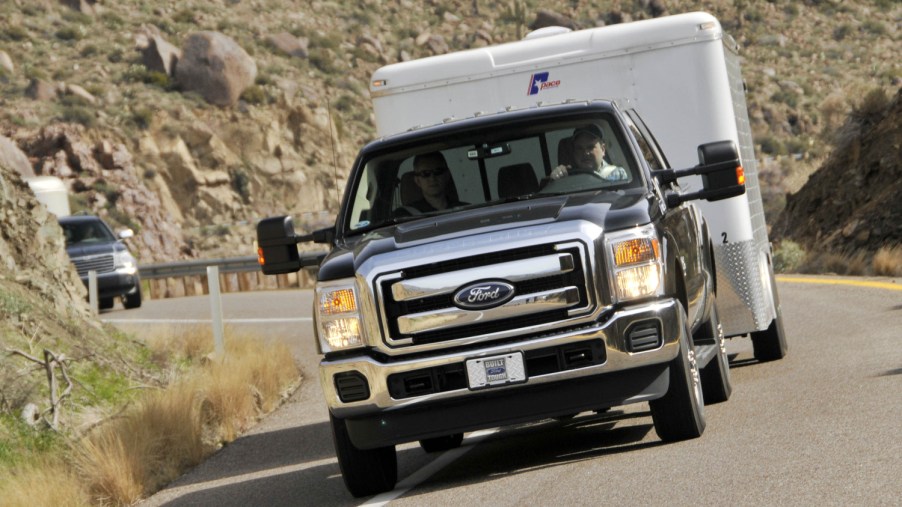
Are Diesel Engines More Expensive to Maintain?
There are a lot of misconceptions about diesel engines. The good news is that the experience is very similar to driving a gasoline vehicle, except at the gas pump. While prices of all fuel types fluctuate, your diesel car or truck will still get better fuel economy overall.
What is the difference between a gasoline and diesel engine?

Diesel engines might not be as popular in the U.S. as in other countries, but that doesn’t mean you should avoid a diesel car or truck.
According to the U.S. Department of Energy, diesel engines and gasoline engines are not all that different. Both are internal combustion engines (ICE) that convert chemical energy from fuel into mechanical energy. The mechanical energy moves the pistons and eventually, this motion moves the wheels of the car or truck.
Diesel engines have a compression-ignited injection system while most gas-powered vehicles have a spark-ignited system. One of the other benefits of a diesel engine is that such a process reduces nitrogen oxide (NOx) emissions into nitrogen and water.
Both diesel and gasoline engines convert the fuel energy into mechanical energy with combustions. In a gas engine, fuel mixes with air and is compressed by pistons ignited by sparks from spark plugs.
In a diesel engine, the air gets compressed first. After that, fuel is injected. Due to being compressed, the air heats up. As a result, the fuel ignites.
Do diesel engines require more maintenance?
Some drivers choose a diesel because the engine gets better mileage without having to choose a hybrid. Hybrid cars use gasoline combined with electric engines to get a better fuel economy. Additionally, if you do a lot of city driving, a different kind of engine might be better.
It depends on what kind of driving you will do in your truck to determine if this engine is right for you. Diesel engines may be ideal for those who drive on the highway more often. This is because it gets better mileage than gasoline.
According to Digital Trends, diesel engines are reliable and require little care. Since the engines do not require spark plugs and the associated electrical systems, the engine is simpler and easier to maintain.
“In general, a diesel engine will outlast a gas engine in terms of how many miles or hours it can run before it needs major service, so repair bills are smaller and typically further apart for a diesel engine. Keep in mind these are broad statements; you can encounter an unreliable diesel (especially if it hasn’t been maintained properly) and many gas engines go 200,000 miles or more before needing a rebuild.”
Ronan Glon | Digital Trends
The moral of the story? Focus on maintaining your vehicle no matter what kind of engine you have. Any engine can be unreliable if it is not maintained.
Are diesel cars and trucks still worth buying?
Absolutely! However, there are a lot of new cars and trucks on the market these days. Electric vehicles have been making a stir lately as most of the world pushes for a less gas-dependant future.
Diesel fuel is often less expensive than gasoline, but prices fluctuate. Even if you do pay more for fuel due to changes in price, you will still net more fuel economy.
As most companies have pledged to stop making gasoline and diesel cars by 2030 or similar, it might be time to get one before you can no longer do so. Or, make the switch to electric beforehand.
Be sure to do research ahead of time to ensure you are getting the right car for you.



